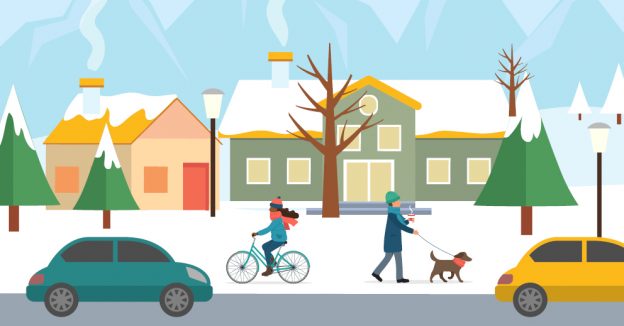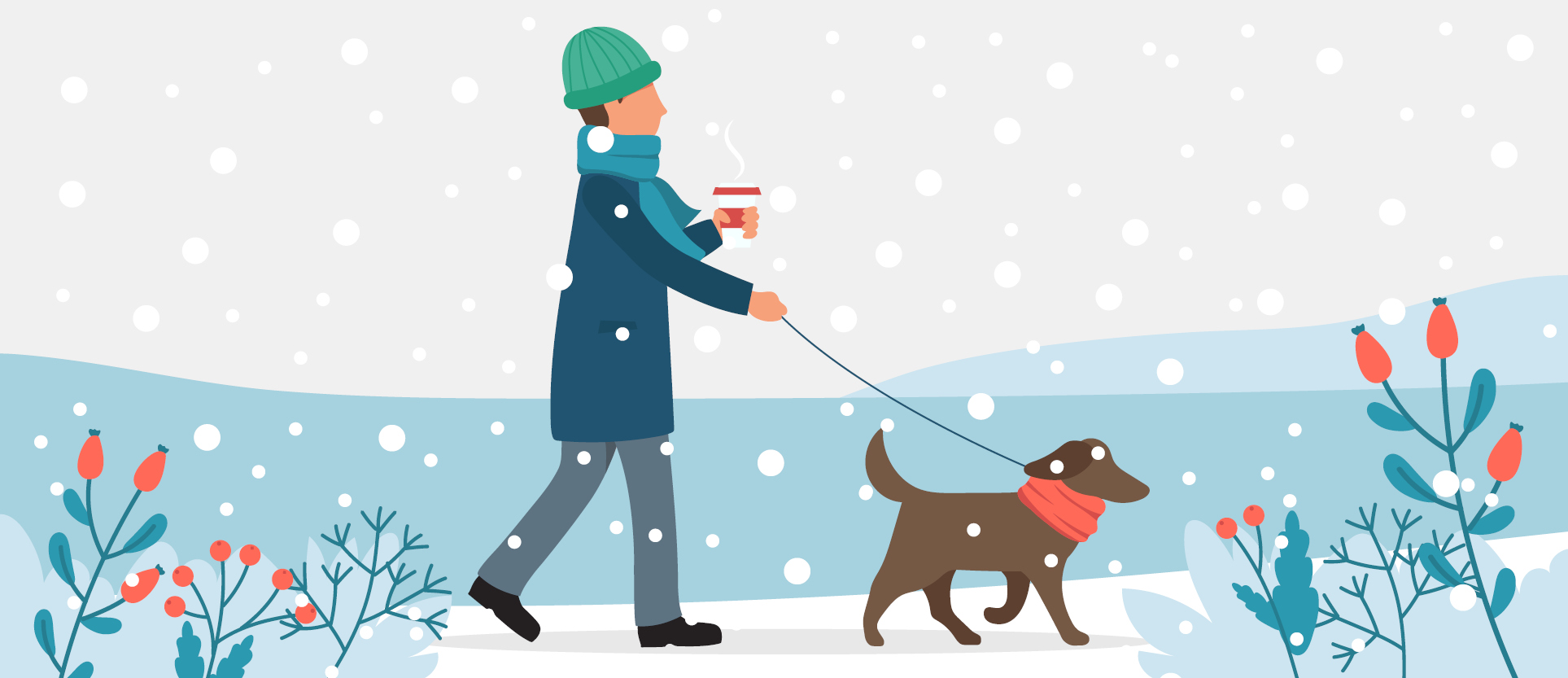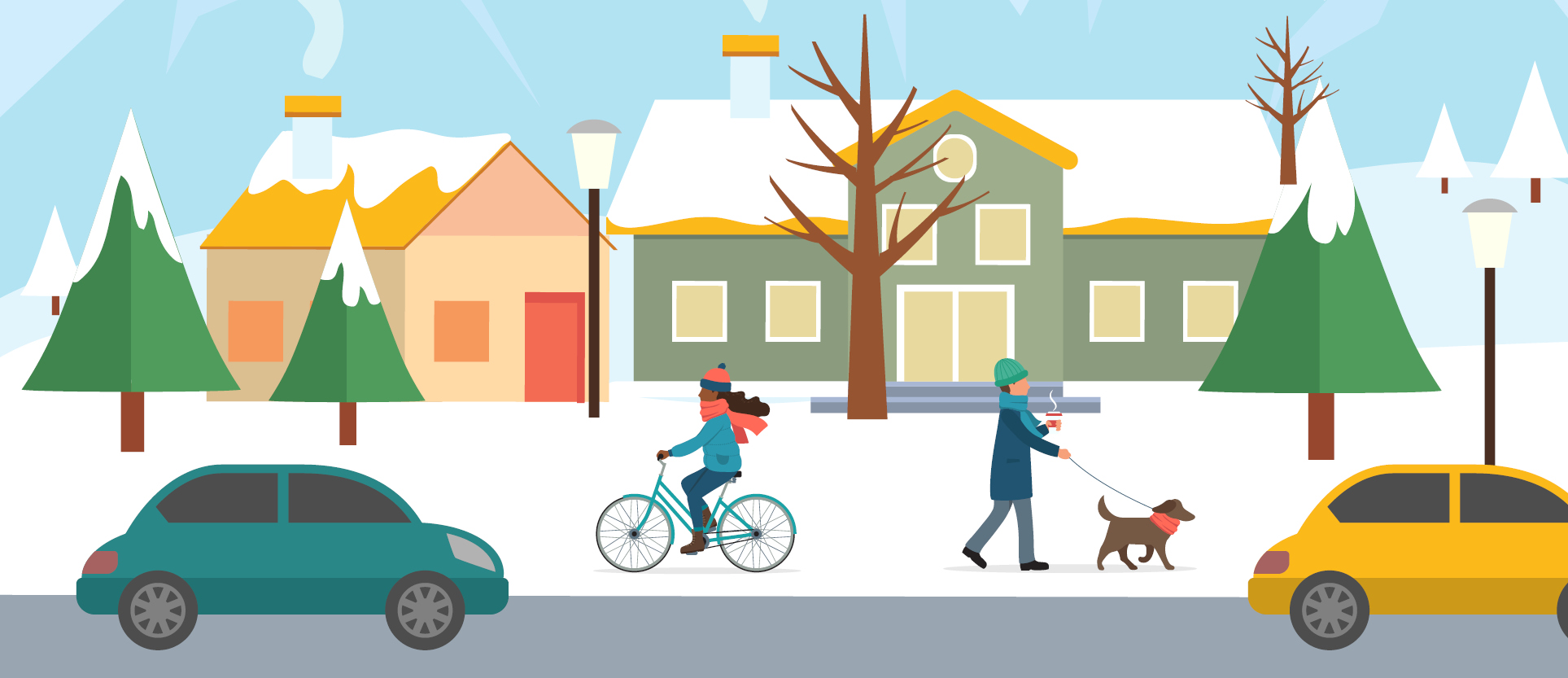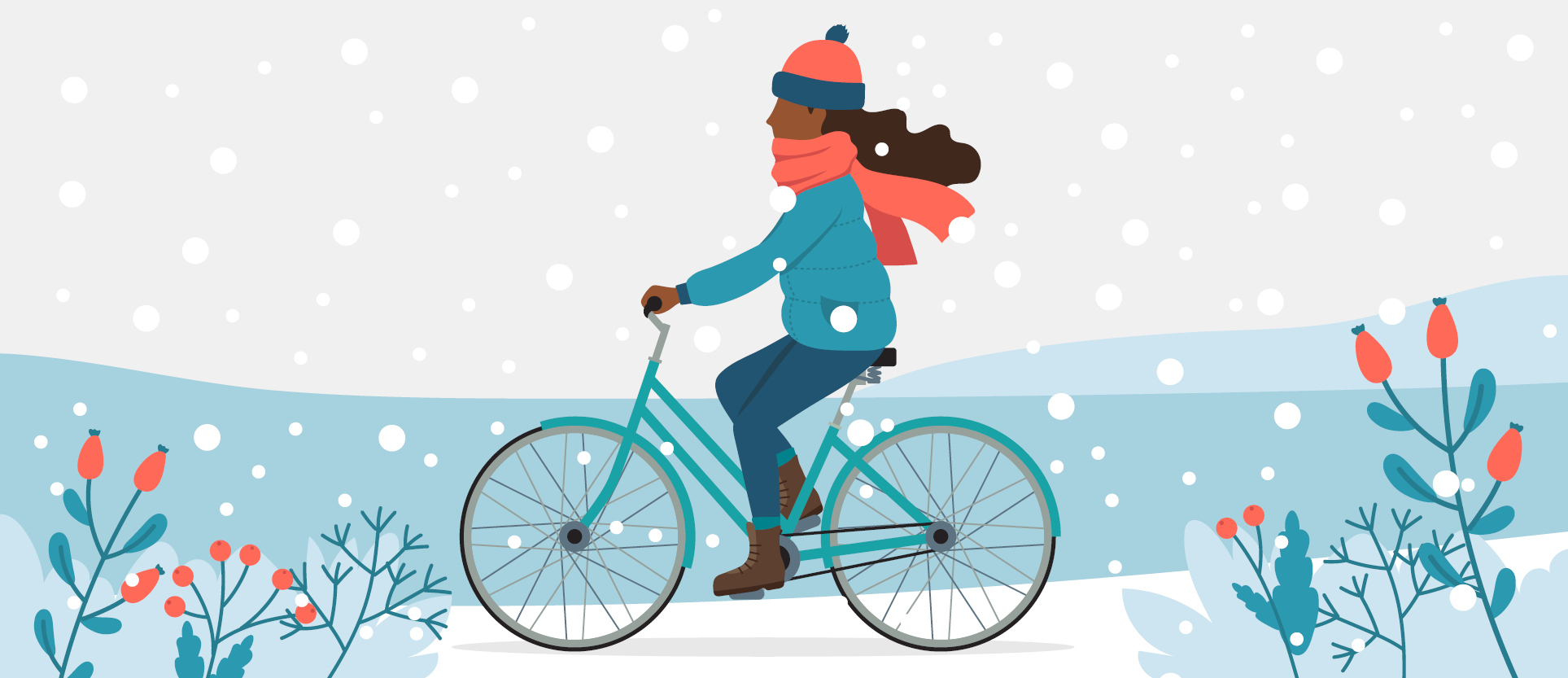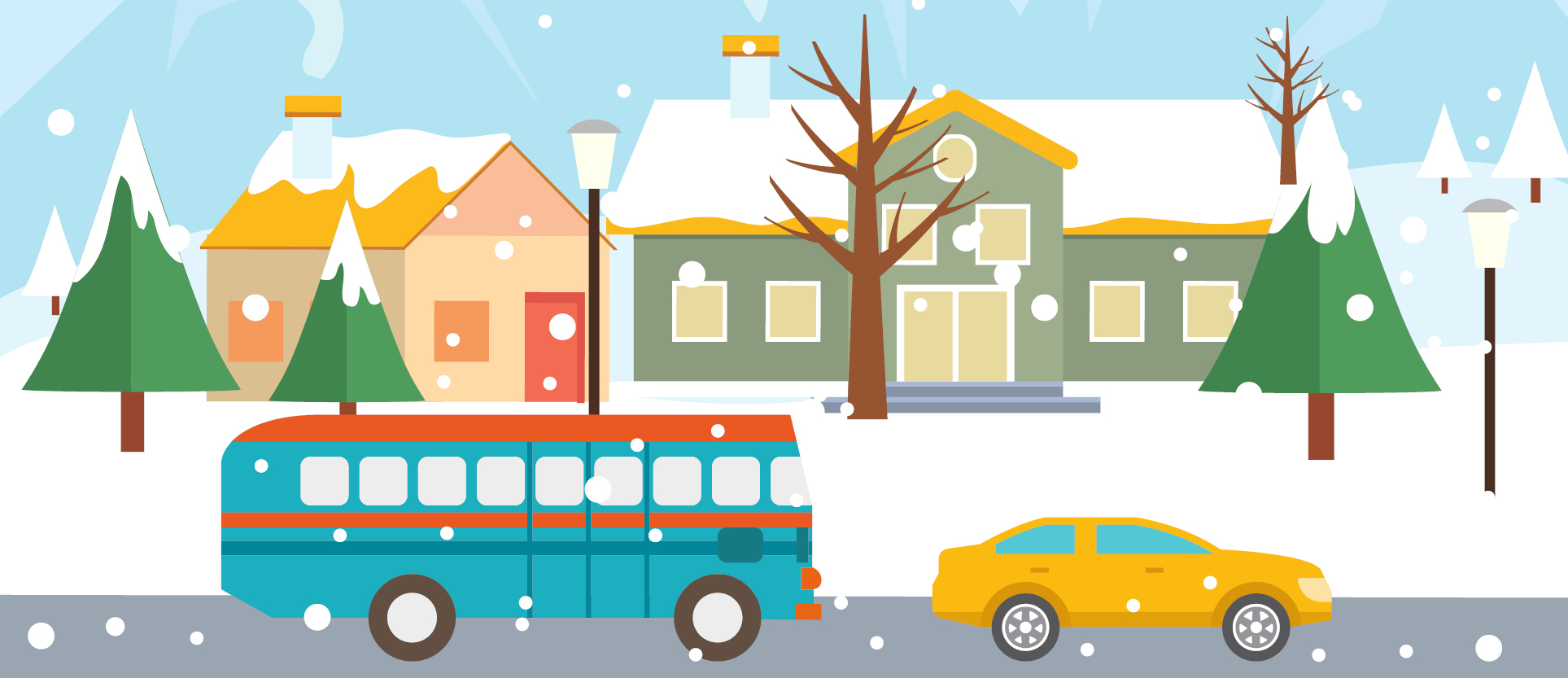Now the clocks have gone back, temperatures are dropping and the nights are drawing in, we want to emphasise the importance of staying safe in the dark and ensuring you’re visible when you’re travelling at night during the winter months.
We aren’t always aware of some of the added dangers lurking during the colder months; but for veterinary nurses, SVNs and others working in the profession, this is especially important when you’re working night shifts in practice and need to travel to and from work.
Walkers
When walking to college or work you should allow extra time for your journey and take extra care to avoid falling, especially during periods of heavy snowfall or icy conditions, as footways are not always gritted. You should also be more aware of your surroundings when walking in the dark. You should:
- Walk slowly and carefully to avoid slipping or falling
- Wear sensible shoes with plenty of grip, and thick clothing and coats
- Be aware of approaching vehicles, cyclists and other walkers
- Make sure you can be seen after dark or in poor visibility (eg foggy or overcast days) by keeping to well-lit, populated routes and wearing bright, reflective clothing
- Try to avoid secluded or poorly lit areas
- Be aware of your surroundings when walking at night by taking out your earphones and being conscious of using your phone in quieter areas. If possible, you may also wish to find a travel buddy or small group to walk with
- Don’t forget about your dogs! If you are out walking your dog after dark, hi-Vis dog leads and flashing collars will help your dog to be seen in the dark. Read more of our winter pet safety tips
Drivers
If you need to travel into work or college in your car, we would urge you to take extra care and be aware of the added dangers during wintery weather. You should:
- Check the latest local weather forecast before starting out so you’re aware of conditions and road closures
- Allow extra time for the journey to de-ice your car and check all your car lights are working fully. Particularly check your fog lights, as it may be some time since you have used them.
- Be aware of other road users, pedestrians or cyclists, who may not be taking steps to make themselves visible. Look out for them; better use of your lights will help you see and avoid others.
- Make sure you keep blankets, a torch and basic safety equipment in your car in case you break down in adverse weather conditions.
- Practice safe driving during bad weather: reduce speed, increase stopping distances, avoid sudden acceleration and braking, drive slowly through bends, use dipped headlights in poor conditions and listen to the latest travel advice from official authorities.
- Consider using public transport in bad weather to avoid the risk of breakdowns and potential accidents
Cyclists
Winter cycling presents unique challenges, such as slippery road surfaces to decreased visibility and potentially a greater strain on your body and bike as you battle through wintery weather conditions or cycle after dark. When travelling to college or work by bike, you should:
- Fit lights on your bike and check they are all working fully before you set off – it is the law in the UK to have lights on your bike at night
- Wear bright, reflective clothing and tape to stay visible after dark or in poor visibility (eg foggy or overcast days) This ensures you draw the attention of drivers, walkers and other cyclists
- Set your pace accordingly, for example slow down when roads gets twisty or hilly, or conditions are poor due to heavy rainfall, snowfall, mud, silt or gravel
- Winterproof your bike, for example by fitting mud guards or tyres with extra grip
- Make sure you regularly service your bike to ensure it is clean and functional, to avoid breakdowns during your journeys
- Layer up to ensure you stay warm during colder cycle rides
Public transport and taxis
In wintery conditions there may be delays to public bus and train transport services, so make sure you keep up-to-date by looking at the schedule or website before you leave. If you plan to take a taxi, book it in advance or get one from the taxi rank. Don’t flag down cars and always check you’re travelling with a recognised, licenced taxi service.
Stay alert, and keep safe
Remember, during the pandemic there may be less people around. So, however you choose to travel into work or college – it’s important make plans for your journey and let someone know where and when you will be travelling.

